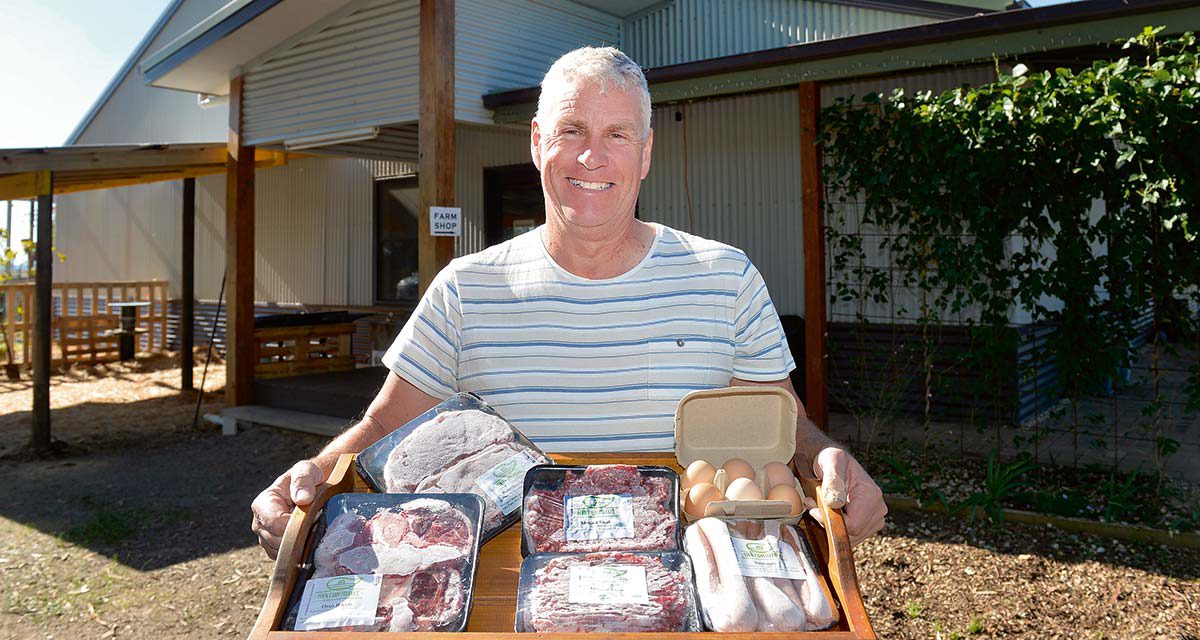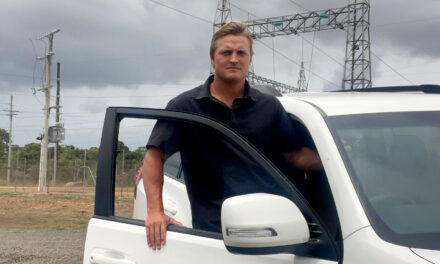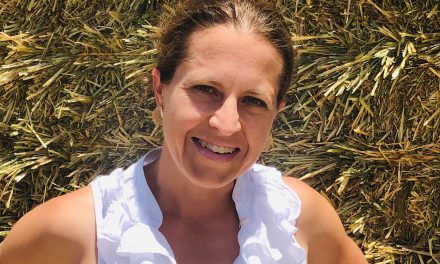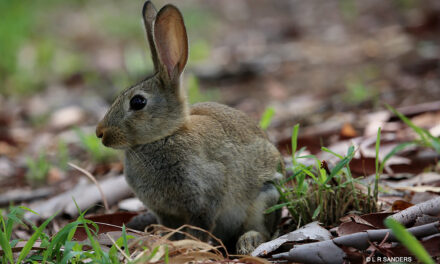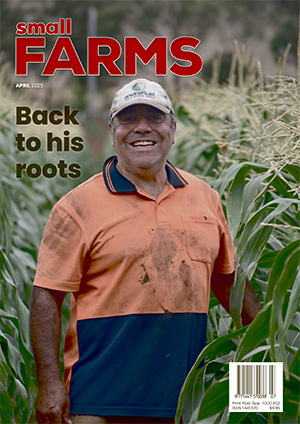A small beef cattle herd, a small market garden and big plans to expand with a small scale bio-dynamic abattoir is making one Victorian family farm look pretty progressive reports SOPHIE BALDWIN
GARY and Sue Baker have been farming bio-dynamically for the past 17 years.
They produce bio-dynamic beef and vegetables through their family run business Eden Farm Produce at Numurkah in northern Victoria.
They run 60 head of Maine-Anjou/ Shorthorn cross cattle and a two acre market garden grown by daughter Hollie Mongan.
Hollie is steering the business towards the future with plans firmly afoot to establish a bio-dynamic abattoir and butchery on farm, along with a shopfront and eventually down the track, a tourist park including a glamping area around a wetland lake.
“Our long term goal is to establish a health retreat with guest speakers including naturopaths and dieticians — a retreat where people can stay on farm learn about rejigging their health and also educate them along the way on how we farm,” Hollie said.
Bio-dynamic farming is a holistic, ecological, and ethical approach to farming, gardening, food, and nutrition.
It came about for the family after Sue had a health scare.
“Mum was very sick at the time and we were looking at natural ways of eating. My uncle is a bio-dynamic dairy farmer and he has been the inspiration behind the success of our cattle management,” she said.
The family farm 60 head of cattle off 60 ha they share with kangaroos, possums and other native wildlife.
Over 20 per cent of the farm is planted out to trees which provide shade for the livestock, an environment for the native animals and an opportunity to decrease carbon and put it back into the soil.
The stock is currently run in three herds and moved across a combination of crops, permanent pasture and dryland paddocks.
“They are beef cattle and they fatten up very quickly so they are having a bit of a holiday on the dryland at the moment,” she laughed.
The pastures are rotated regularly to improve soil structure to ensure they grow the best quality pasture grass and crops they can.
Hollie said the Maine Anjou are a lovely, quiet tempered animal with good muscling while the Shorthorn have a good fat content — the combination provides the perfect animal for Eden Farm.
The steers are processed around 18–24 months and they currently process one a month.
“Our aim is to keep increasing the number of animals we process and to eventually get that number up to one a week — that’s an amount I think we can sustain with the current stock we have.”
Each animal is processed into individual cuts, including steak, sausages, roast and mince.
They are currently processed in Wangaratta which is the closest available abattoir, while the carcase is butchered in Numurkah.
This is the element of their business they are looking to take over themselves.
“Everything produced on farm is certified bio-dynamic but because the abattoir is not we can’t get that certification.
“We have obtained a planning permit and are currently in the early stage of establishing a building permit so we can build our own.
“It is important to us that every step in the chain is completed by us so we know exactly what is going on.
“We look after our cattle and we want to be in charge of every step — our cattle lead a brilliant life and we care for them very well, but they are bred for beef production and processing and we want that step to be as high quality as it can be.”
Interestingly the family run a second solar power business and their plan is to run the whole abattoir, butchering facility and shop front on solar power.
“We take sustainability very seriously and the whole development will be powered by solar.”
The expansion of the business will require the couple to employ five additional staff and they are hoping to get this process underway as soon as possible, they are working closely with their local shire and are also looking at some development funding grants.
While Hollie is involved across the whole business, the vegetable side of the operation is grown on her own .8ha.
She grows anything from lettuce, silver beet and other green leafy crops, pumpkins, tomato, zucchini and glass gem popcorn.
The popcorn and pumpkin are great because they have some longevity about them and can be sold over the dormant winter months, when nothing much comes out of the patch.
“My farm is just down the road. The vegetables are grown on an area where the silage bales used to be stored so it was never a high producing bit of land and it has been working really well.”
Soil health is of course an extremely important aspect of vegetable growing and the use of green manure has become a significant part of the soil health process.
Over the dormant winter months the whole area is sown with a green manure mix consisting of 70 per cent legume and 30 per cent grain (all grown from bio-dynamic seed) including lupins, field peas, vetch and wheat and oats.
“Last year I had some seed which had sprouted in a bucket. I threw it out on a 2 x 2 square and planted some glass gem popcorn. I noticed it was as much as three times bigger than the crop grown elsewhere so we had some amazing results and decided to implement it in our management.”
The green manure crop is cut down and mixed into the soil before it flowers so all the nutrients remain in the plant and roots and not in the seed.
The crop also fixes nitrogen in the soil and is a natural fertiliser.
Hollie uses companion planting as a major way to protect her plants from the threat of disease.
“This has been a bit of trial and error for us but we haven’t had too many issues since we started. Tomato plants for example can get tomato worm but planting them amongst other plants appears to help.”
The family are extremely passionate about bio-dynamics in particular the health benefits eating nutrient dense food provides.
“Mum was very sick with colitis and she has had surgery. The medication she was on gave her liver damage and she had trouble absorbing nutrients, eating healthy nutrient dense food has really helped her and her health now is the best it has been in decades.
“Bio-dynamics is a step higher than organics and has a huge focus on soil structure and health so we can produce really healthy animals and plants.
“The public is very supportive of what we do and there has been a big turnaround. People are more considerate about healthy eating and it is definitely an upward trend — illness can be turned around by healthy bio-dynamic eating.”

